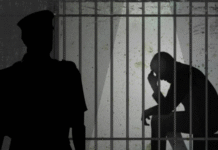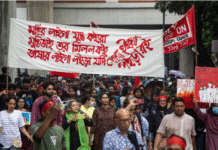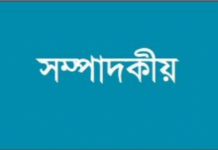Govt should address allegations rather than suppress public opinion

The illusion is long gone—or perhaps, as media observers remind us, it was never there—the illusion created by the proponents of the Digital Security Act (DSA) that it could be used to address actual threats facing users on digital platforms. It never happened. Far from being an improvement on its infamous predecessor (Section 57 of the ICT Act), this law, if anything, has turned out to be a more frightening version, an instrument of intimidation used ever more zealously to punish opponents and suppress any hint of critical opinion directed at the powers that be. Even during the Covid-19 crisis, we have witnessed how its wielders have frequently sought to disrupt the free flow of information and views, which is vital to save lives. According to data gleaned from the Bangladesh Peace Observatory (BPO), a project by Dhaka University’s Centre for Genocide Studies, at least 142 people, including journalists, were arrested or detained since March for reporting, spreading so-called “misinformed” news, or their social media activity. These are only reported cases, and a picture of the full extent of harassment endured by critics in various forms is yet to emerge.
Against this backdrop, a group of teachers on Monday joined the growing chorus of voices calling for the abolition of the Digital Security Act. Members of the University Teachers’ Network, a platform for private and public university teachers, staged a sit-in to express their demand, saying, rightly, that the government is applying the law against those who have been outspoken about corruption, abduction, killings and other irregularities. Instead of addressing those allegations and saving people’s lives, which should be a priority amidst a raging pandemic, it is being used to protect corrupt politicians and bureaucrats, they alleged. They also called for the immediate release of all those arrested under the DSA. Their demand comes on the heels of a police arrest of a 14-year-old student of class nine in Mymensingh on Saturday, allegedly for putting up a Facebook post “defaming” the prime minister. The incident, which followed after he was framed in a case under the Digital Security Act, caused widespread public outrage.
Under the circumstances, we think the demands raised by the university teachers merit serious consideration. The public has a right to know about, and speak out against, the mismanagement, corruption and irregularities that are endangering their lives and livelihoods. Equally, the government has a responsibility to listen to the legitimate concerns of the people and take adequate measures to address them. Using repressive measures and laws such as the DSA to suppress their voices only serves to create an impression that people’s safety and security are secondary to the interests of their representatives. This is not the image that Bangladesh can afford to have of itself at a time when its ability to handle the crisis is being questioned globally. It is time to make the DSA obsolete, or better still, repeal it for good.









